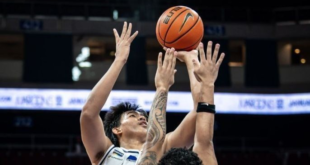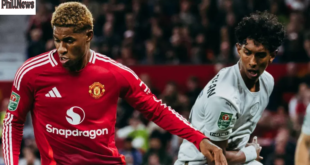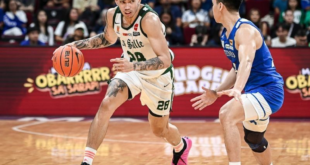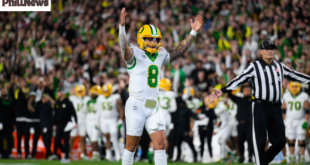Introduction
In a season filled with high expectations and ambitions, the Detroit Lions were dealt a major blow as their standout edge rusher, Aidan Hutchinson, was carted off the field with a broken tibia. The injury, sustained during a crucial game, has sent shockwaves through the Lions’ fanbase and the entire NFL community. Aidan Hutchinson, the former No. 2 overall pick in the 2022 NFL Draft, has been a cornerstone of Detroit’s defense, and his absence is likely to leave a significant void. This article will dive deep into the details surrounding Hutchinson’s injury, its implications for both the player and the team, and what fans can expect moving forward.

Who Is Aidan Hutchinson?
Before discussing the injury, it’s important to understand the caliber of player Hutchinson has been for the Lions since he entered the league. A Michigan native, Hutchinson made headlines during his time at the University of Michigan, where he was known for his relentless motor, athleticism, and leadership on the defensive line. His stellar senior season with the Wolverines saw him rack up 14 sacks, earning him a spot as a Heisman Trophy finalist – a rarity for defensive players.
Hutchinson’s transition to the NFL was seamless. In his rookie season with the Detroit Lions, he quickly established himself as a defensive force, recording 9.5 sacks, three interceptions, and a host of tackles that showed his versatility. His unique blend of size, speed, and technical skill made him a key component of the Lions’ rebuilding defense. As a fan favorite, Hutchinson has embodied the grit and resilience that Detroit is striving to recapture.
The Injury: What Happened?
The injury occurred in a Week 6 matchup against a divisional rival. With the Lions fighting to maintain playoff contention, Hutchinson went down awkwardly after a play during the third quarter. Initially, it appeared to be a routine collision, but Hutchinson immediately signaled to the sideline, clutching his leg in obvious pain. The medical staff quickly attended to him before bringing the cart to take him off the field.

Post-game reports confirmed the worst: a broken tibia in his left leg. This type of injury can be particularly devastating for a player like Hutchinson, who relies on explosiveness and power in his lower body to generate pressure on opposing quarterbacks. A broken tibia, one of the major bones in the lower leg, typically requires several months of recovery and rehabilitation, potentially sidelining Hutchinson for the remainder of the season.
The Impact on the Lions’ Defense
Aidan Hutchinson’s loss cannot be overstated when analyzing the Lions’ defense. Under head coach Dan Campbell and defensive coordinator Aaron Glenn, the Lions have been working to build a defense that can dominate the line of scrimmage and disrupt opposing offenses. Hutchinson, as the team’s top pass-rusher, was a critical piece of this puzzle.
Disruption in Pass Rush: Hutchinson’s greatest strength has been his ability to apply consistent pressure on quarterbacks. His sack numbers and quarterback hits are impressive, but it’s his constant presence in the backfield that makes him so valuable. With Hutchinson now out of the lineup, opposing teams may find it easier to neutralize Detroit’s pass rush, which will force the Lions to adapt their defensive strategy. They will now have to rely more heavily on blitzes and scheme-based pressures to compensate for his absence.
Run Defense Vulnerability: Beyond his pass-rushing prowess, Hutchinson is also an exceptional run defender. His ability to set the edge and make tackles behind the line of scrimmage has been a key component in limiting opposing teams’ ground games. Without Hutchinson, the Lions may become more vulnerable to run-heavy offenses, especially in a division that includes teams like the Minnesota Vikings and Green Bay Packers, who have strong running backs capable of exploiting defensive gaps.
Leadership Void: Hutchinson isn’t just a physically imposing player; he’s also a leader on and off the field. His work ethic, intensity, and leadership in the locker room have set the tone for a young Lions defense. Losing a player of his caliber means not only missing out on production but also on the intangible leadership qualities that help elevate the entire unit. Hutchinson’s ability to rally his teammates and lead by example will be sorely missed as the Lions navigate the rest of the season.
Who Will Step Up?
With Hutchinson out for the foreseeable future, the Lions will have to rely on their depth chart and next-man-up mentality. Detroit’s coaching staff will look for other players to step into the starting role and attempt to fill the void left by Hutchinson.
1. Charles Harris: A veteran on the roster, Charles Harris has shown flashes of potential as a pass-rusher. Harris, who has experience playing both outside linebacker and defensive end, will likely see increased snaps in Hutchinson’s absence. While Harris doesn’t possess the same upside as Hutchinson, his experience and ability to generate pressure will be crucial.
2. Julian Okwara: Another name to watch is Julian Okwara, a young edge rusher who has been part of the Lions’ rotation. Okwara has dealt with injuries throughout his career, but when healthy, he has shown the ability to get after the quarterback. With more playing time and an opportunity to showcase his skills, Okwara could be a breakout candidate if he can stay on the field and produce.
3. James Houston: A late-round draft pick, Houston impressed in the preseason and could be another player the Lions turn to for a spark. While Houston is still developing, this injury may force the Lions to give him more reps, especially in pass-rushing situations.
How Does This Affect the Lions’ Playoff Hopes?
Entering the season, the Lions were considered one of the dark horse contenders in the NFC North. With a revamped roster, a talented young core, and a coaching staff that has reinvigorated the franchise, there was real optimism in Detroit about the team’s chances of returning to the playoffs for the first time since 2016. However, Hutchinson’s injury could dramatically impact their ability to make that leap.
Divisional Challenges: The NFC North is notoriously competitive, with the Packers, Vikings, and Bears all vying for playoff spots. Hutchinson’s injury could make the Lions’ path to the top of the division much more difficult. Without their top defensive player, the Lions will have to find other ways to generate pressure on opposing quarterbacks and keep games close.
Defensive Scheme Adjustments: Defensive coordinator Aaron Glenn may have to overhaul the team’s defensive schemes to compensate for the loss of Hutchinson. This could involve more aggressive blitz packages, increased reliance on secondary players like cornerbacks and safeties, and a shift toward a more conservative approach in certain situations. These adjustments will be critical as the Lions look to navigate the remainder of the season.
Importance of Offense: With Hutchinson out, the Lions’ offense will face increased pressure to perform at a high level. Quarterback Jared Goff and the team’s dynamic receiving corps will need to score more points to compensate for the potential decline in defensive production. Additionally, the Lions’ running game, led by standout back Jahmyr Gibbs, will need to control the clock and keep the defense off the field as much as possible.
Hutchinson’s Road to Recovery
A broken tibia is a serious injury, but with modern medical advances, the outlook for recovery is much better than in the past. Hutchinson will likely undergo surgery to repair the bone, followed by an extensive rehabilitation program. The typical recovery time for a broken tibia can range from three to six months, depending on the severity of the injury and the healing process.
Rehabilitation Process: Hutchinson’s rehab will focus on regaining strength and mobility in his leg. The early stages will involve rest and limited weight-bearing activities, followed by physical therapy aimed at restoring range of motion. As the bone heals, Hutchinson will begin more intensive exercises to rebuild the muscle around the injury site and ensure his leg can handle the demands of playing in the NFL.
Mental Toughness: Physical recovery is only part of the equation. Hutchinson will also face mental challenges as he returns to the field. Injuries can be mentally draining, especially for a player who is used to being at the top of his game. However, Hutchinson’s reputation as a hard worker and his strong mindset suggest that he will attack his rehab with the same intensity he brings to the field.
Will Hutchinson Be the Same Player Post-Injury?
One of the biggest concerns following a significant injury is whether a player can return to the same level of performance. In Hutchinson’s case, his youth, work ethic, and access to top-notch medical care bode well for his chances of making a full recovery. While it’s impossible to predict how any player will respond to an injury, there are reasons to be optimistic about Hutchinson’s future.
Long-Term Outlook: Assuming his rehab goes as planned, Hutchinson should be able to return to form by the start of the 2024 season. His playing style, which relies on a combination of technique, strength, and athleticism, should not be significantly hampered by this injury. Additionally, Hutchinson’s commitment to improving every facet of his game suggests that he will use this time off to study film and refine his techniques.
Conclusion
The news of Aidan Hutchinson’s broken tibia is a tough pill to swallow for Detroit Lions fans, but it’s important to remember that injuries are a part of the game. While Hutchinson’s absence will undoubtedly be felt, the Lions must now rally as a team and find ways to fill the void left by their star defender. The next few months will be critical, both for the Lions’ playoff hopes and for Hutchinson’s recovery.
 Phill News Entertainment – Phill News
Phill News Entertainment – Phill News



